Millennials have paved the way for change in the food industry, demanding manufacturers be transparent about what’s in their products and creating significant demand for natural products. Loosely defined as people born from the early 1980s until the mid-90s, Millennials are the largest U.S. age demographic and have had a big influence on the industry. As we looked to develop our predictions for which better-for-you food trends are going to have the most gains in 2020, we looked to the Millennial consumer for insights. This generation, after all, ranks their knowledge of food and nutrition the highest – nearly a full ten point higher than their Gen X counterparts – so they’re engaged, they have spending power, and they will continue to shape change influencing Gen Z and beyond.
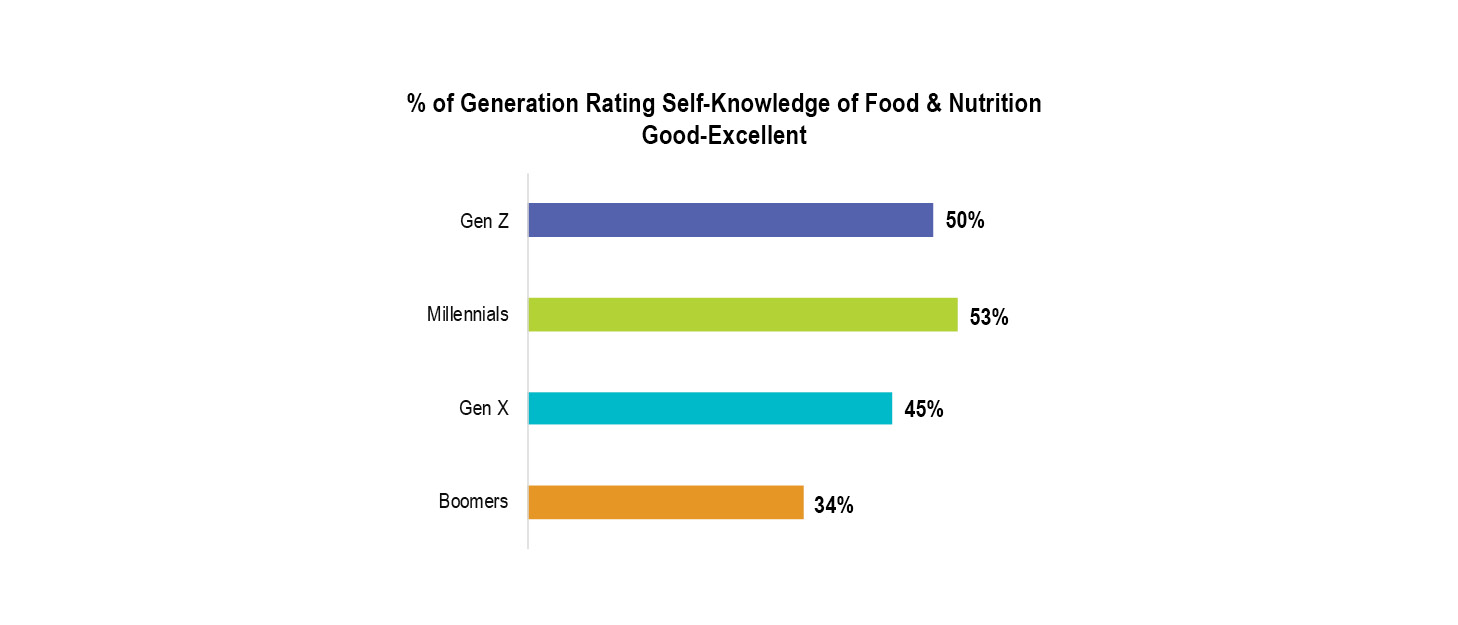
Here are the 4 biggest better-for-you trends we expect to see Millennials demand in 2020:
- [Even] More Plant-Based
While there was a lot of buzz about plant-based in 2019, all signs indicate that this trend will continue to grow in 2020. All generations report eating more plant-based alternatives in the last year but Millennials place the most importance on eating plant-based and also report making the most purchases plant-based alternatives.
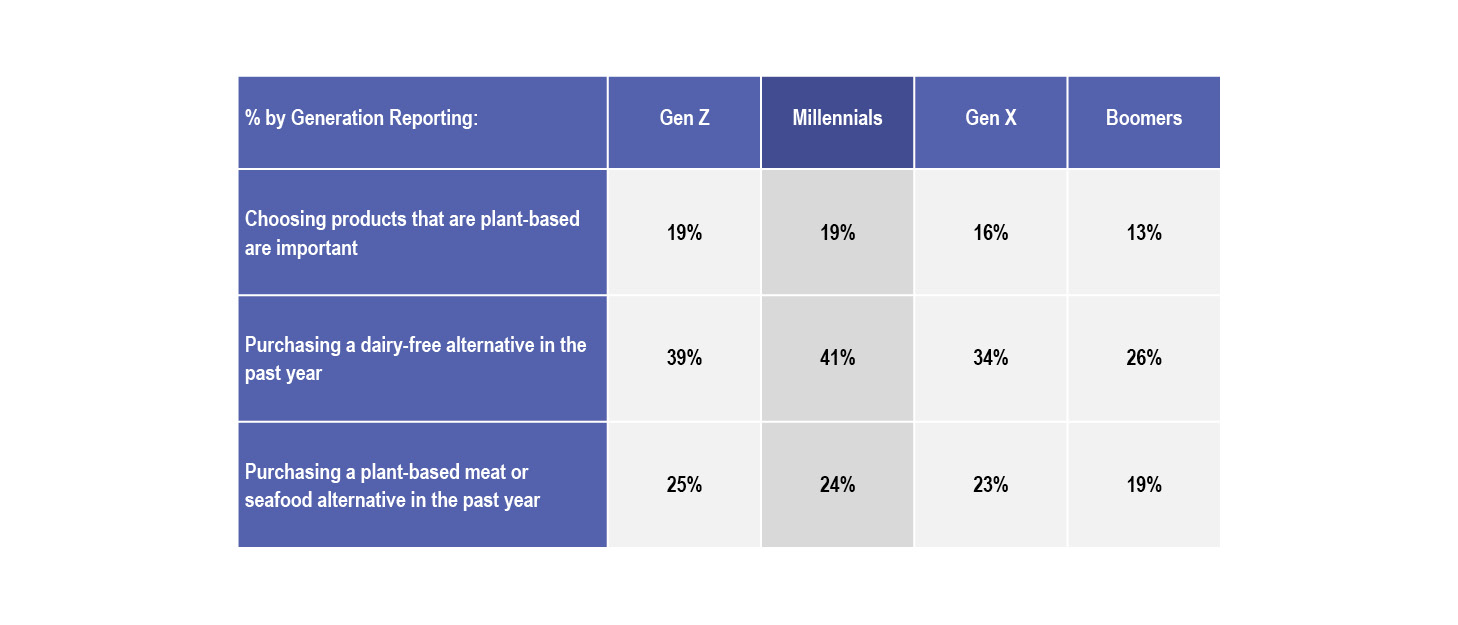
Millennials are adventurous, willing to try new foods, and are looking for offerings customized to their diets. And the industry has delighted them with plant-based innovation across just about every category in the grocery – from avocado based chocolates to bean based chips. When thinking about Millennials, we also need to recognize that young children today have Millennial parents. These parents are also introducing plant-based to their kids because they believe plant-based is healthier and want to teach their children to be ethical consumers. As the offerings for both adults and kids continue to expand, Millennials will continue to fuel plant-based alternative consumption in 2020.
- Ingredients to Support Mental & Physical Well-Being
Across generations, Americans report they are dealing with health conditions with anxiety, weight, and depression topping the list. Millennials are significantly more likely to report managing stress, depression, and overweight conditions than their older counterparts and they are turning to food as medicine to help manage these conditions. Like all Americans, Millennials are reducing their sugar and carbohydrates, but they are significantly more likely to be fueling their bodies with healthy fats and protein. 50% of Millennials reported they added more protein to their diet in the last year and nearly 40% reported adding more healthy fats.
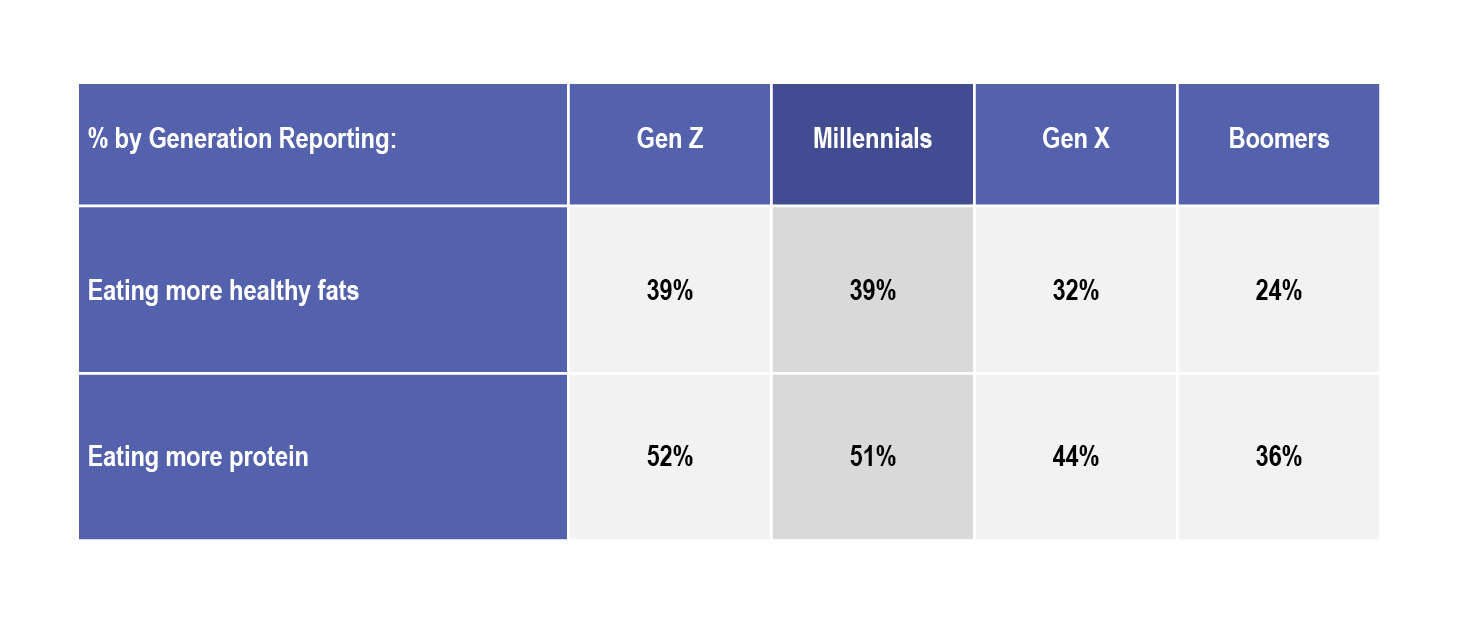
This shift is being driven by emerging nutritional science, the growth of new lifestyle diets, and products being marketed around these ingredients. And while Millennials aren’t ‘dieting’ for weight loss as generations past used to do, more than half report following a specific lifestyle diet or eating strategy in 2019. The most popular strategies are wellness focused rather than restrictive weight loss diets, with the goals to eat low sugar (17%), high protein (15%), and clean (13%).
While eating well and naturally is the generalized goal, many Millennials are savvy to the functional benefits offered by specific ingredients. No longer strictly the domain of supplements, Millennials look to their food to provide functionality. The innovation in this space have been prolific and, with options ranging from collagen infused popcorn to Bulletproof Coffee, manufacturers are looking to cater to the Millennial demand for foods to fuel their minds and bodies.
- Demand for CBD
With stress being top of mind for Millennials, it’s no coincidence that CBD is also a theme for 2020. CBD’s growth has been fueled by the natural health benefits promised by this ingredient and it is very appealing to the Millennial seeking natural solutions. Nearly half of Millennials report they have tried CBD, significantly higher than Gen X (30%) and Boomers (21%). Millennials are also significantly more likely to see CBD as a product to help them manage stress and relax.
The appeal of this ingredient among Millennials is broad, and most predict CBD will grow in importance over the coming year. As regulations become clearer, education expands, and major brands enter this space there will be increased demand for this game-changing ingredient.
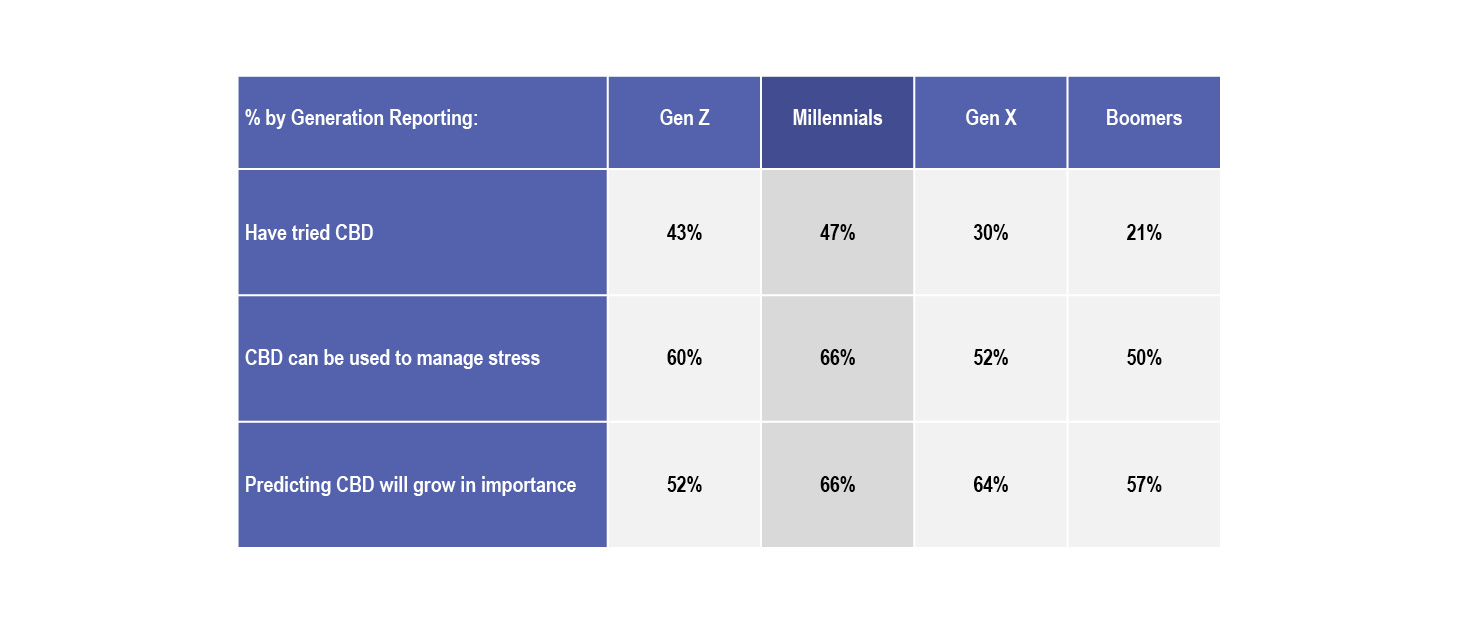
- More Sustainable Consumption
Millennials, more so than their older generational counterparts, are concerned about the impact of our consumption on the planet and the future of mankind. These concerns have driven more companies to adopt sustainable methods of sourcing, production, packaging, and more. Over one-third of Millennials report that sustainable attributes are very important in choosing which products to purchase. And 6 in 10 report that farming and food production methods impact climate change.
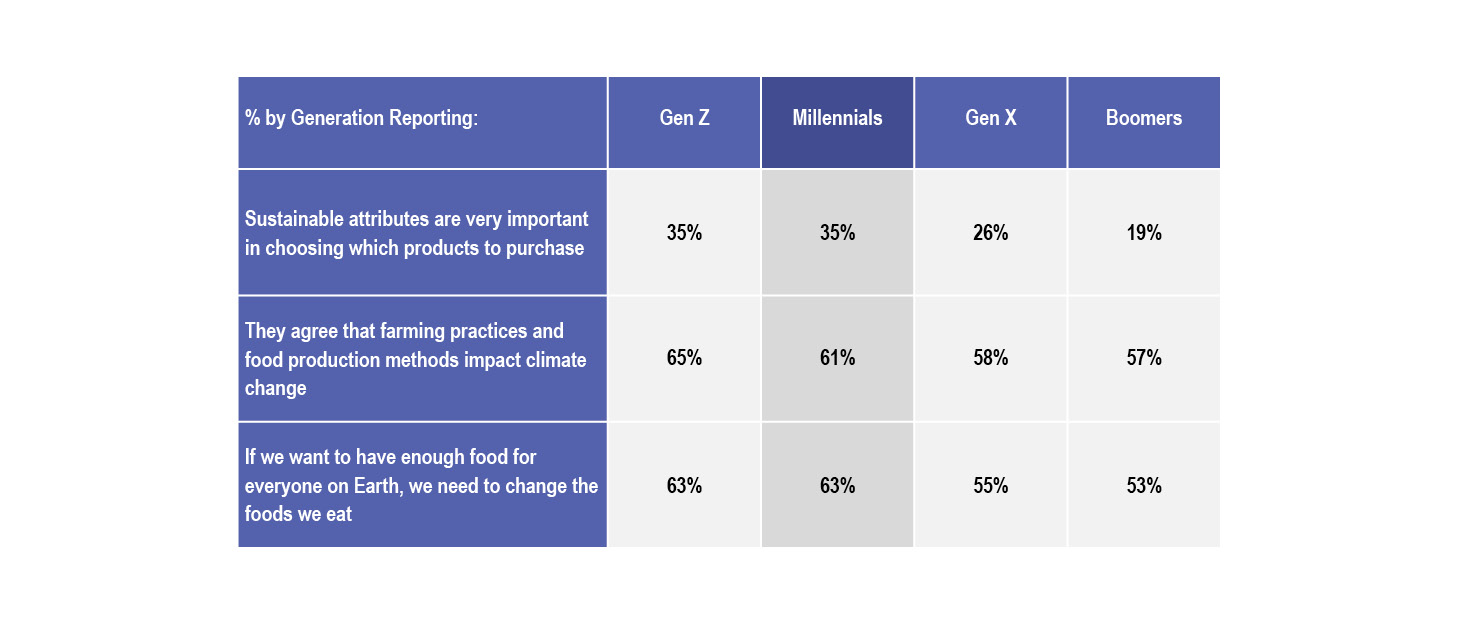
As we look to 2020 and beyond, the importance of sustainability will grow. Not only will consumers seek out packaging that is renewable or recyclable, but they will be looking for brands to choose sourcing and production methods that lower their carbon impact and approach food production in a new way.
Topics like Regenerative and Biodynamic agriculture will come front and center for companies and consumers as these practices not only provide the organic farming that consumers demand but help to regenerate soil and sequester carbon addressing both soil sustainability and climate change.
In addition to sustainability, Millennials value convenience so companies that adopt sustainable practices, while also making it easy for consumers to feel they are positively contributing to the future, will win with the Millennial generation.
Innovating in 2020 & Beyond
If Millennials are in your target audience, it is likely that one or more of these trends will impact your business in 2020 or beyond. If you want to unpack which trends are most relevant and top-of-mind for your consumer, Linkage Research can help with data mining, custom research and innovation workshops. Learn more at https://linkageresearch.com


